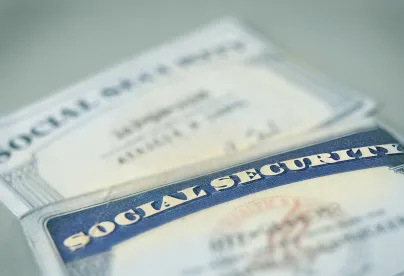Inflation Reduction Act: Guidance on the Way?
On August 16, 2022, President Biden signed into law the Inflation Reduction Act of 2022, Democrats’ $737 billion reconciliation bill that focuses on tax reform, climate change, and healthcare costs. Enactment of the bill culminates a yearlong effort that the Buzz has tracked throughout. The administration is already taking a victory lap, as cabinet officials—including Secretary of Labor Marty Walsh—will be promoting the legislation at various events around the country (undoubtedly, the act will be a major talking point—for both parties—ahead of the November 2022 midterm elections). More substantively, the Buzz has already discussed the apprenticeship and prevailing wage requirements tied to tax benefits. Well, now that folks are digging into the lengthy statute, there is some confusion about how these provisions will operate. Pursuant to the law, the secretary of the U.S. Department of the Treasury is instructed to issue guidance or regulations interpreting these provisions. Hopefully, such guidance will issue sooner, rather than later.
OFCCP Revises Compensation Directive.
On August 18, 2022, the Office of Federal Contract Compliance Programs (OFCCP) issued a revised Directive 2022-01, entitled “Advancing Pay Equity Through Compensation Analysis.” The revision is a response to the contractor community’s concerns that the original directive improperly claimed that OFCCP had the authority to demand contractor compensation analyses conducted under attorney-client or attorney work product privileges. In a blog post accompanying the issuance of the revised directive, OFCCP Director Jenny Yang writes that the new directive “reaffirms the agency’s position that it does not require the production of attorney-client privileged communications or attorney work product.”
OFCCP Seeks FOIA Objections From Contractors.
Speaking of OFCCP, on August 18, 2022, the federal contractor watchdog agency issued a notice relating to potential disclosure of contractors’ EEO-1 Type 2 consolidated reports. More specifically, the notice states that the agency received a Freedom of Information Act (FOIA) request to release “all Type 2 Consolidated Employer Information Reports, Standard Form 100 (EEO-1 Report), filed by federal contractors from 2016-2020.” While the agency claims that it “has reason to believe that the information requested may be protected from disclosure under [FOIA] Exemption 4,” it is soliciting objections from contractors that oppose the release of this information. (Emphasis in original.) Objections are due by September 19, 2022.
ICE Opens Door for I-9 Alternatives.
On August 18, 2022, U.S. Immigration and Customs Enforcement (ICE) published a notice of proposed rulemaking that would potentially allow employers “optional alternatives for examining the documentation presented by individuals seeking to establish identity and employment authorization for purposes of completing the Form I-9, Employment Eligibility Verification.” While federal law requires employers to physically examine employees’ employment verification documents as part of the I-9 process, ICE has permitted employers to conduct remote examinations as a result of the COVID-19 pandemic (this flexibility runs through October 31, 2022). Recognizing this shift to remote work arrangements, ICE is proposing ways to make remote verification more permanent. Importantly, the proposed rule itself would not provide for alternative verification methods, “but would instead formalize the authority for the Secretary to extend flexibilities, provide alternative options, or conduct a pilot program to further evaluate an alternative procedure option.” If the proposal were finalized, any such authorized alternatives would be introduced in a subsequent notice in the Federal Register.
OSHA Approves Massachusetts State Plan.
On August 18, 2022, the Occupational Safety and Health Administration (OSHA) published a final rule granting initial approval of the Massachusetts State and Local Government Only State Plan to cover Massachusetts public-sector employees. Private-sector and federal employees in the state are not covered by the plan, and instead remain under federal OSHA’s jurisdiction. The plan, which will be administered by the Massachusetts Department of Labor Standards, became effective immediately upon publication of the rule in the Federal Register.
Happy Birthday, Social Security.
This week marks the 87th anniversary of President Franklin D. Roosevelt signing the Social Security Act of 1935 into law. The act established the social security and unemployment insurance systems and was later amended to establish Medicare and Medicaid. One can imagine the administrative scramble that took place 87 years ago this week as government officials tried to figure out how to assign Social Security numbers. The result was a convoluted and complex process that was organized through the Social Security Board and local post offices throughout the country. The first Social Security account record was issued to John David Sweeney, Jr., of New Rochelle, New York. But, because numbers were assigned through local post offices—and processed manually—Sweeney was not assigned the lowest number. That accolade belongs to Grace D. Owen of Concord, New Hampshire, whose number was 001-01-0001.




 />i
/>i

